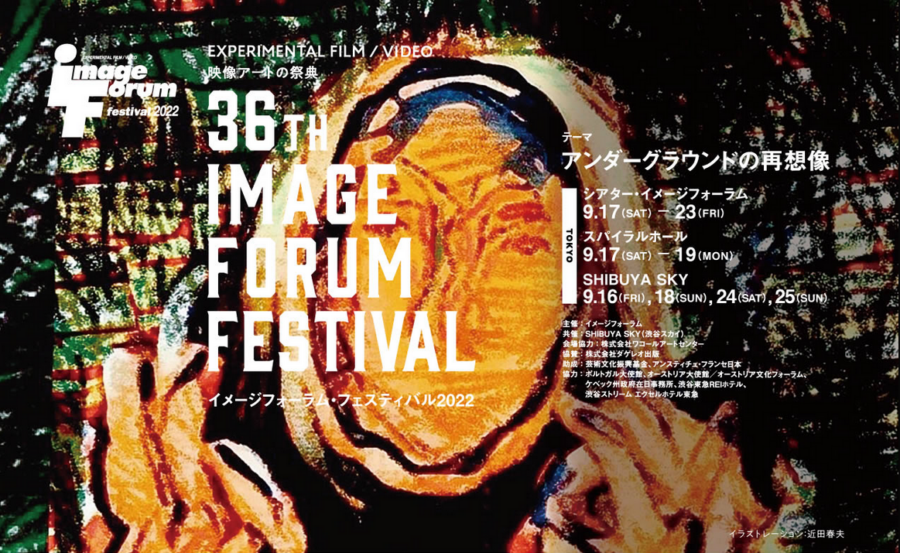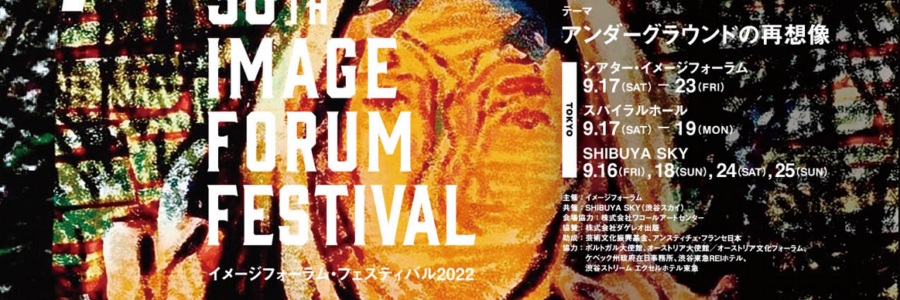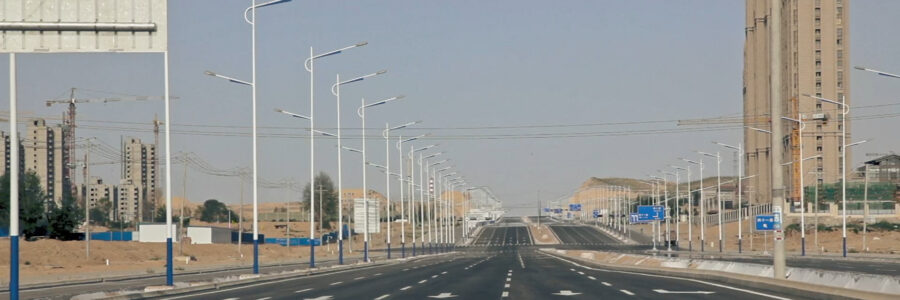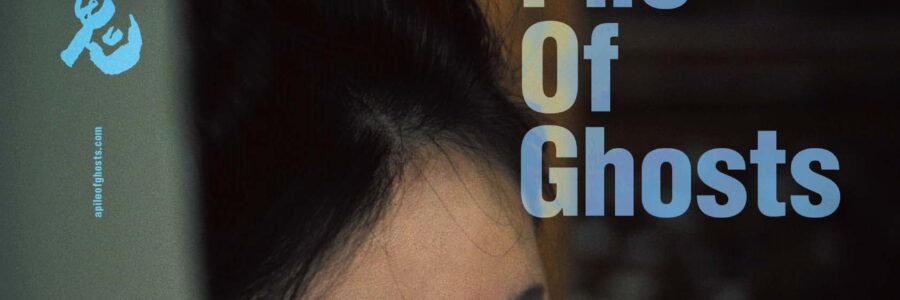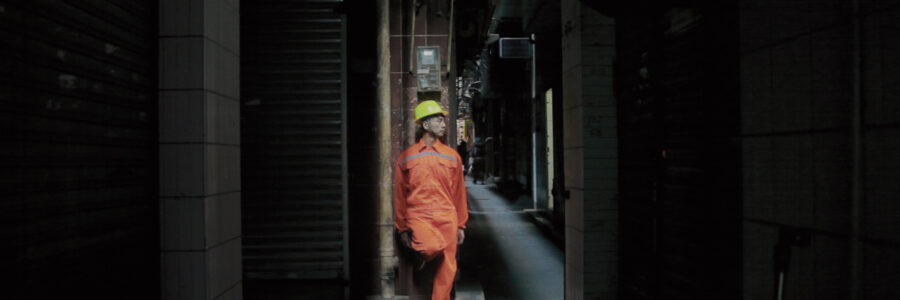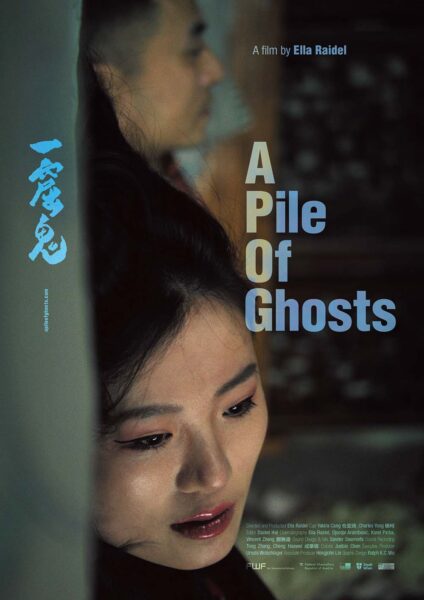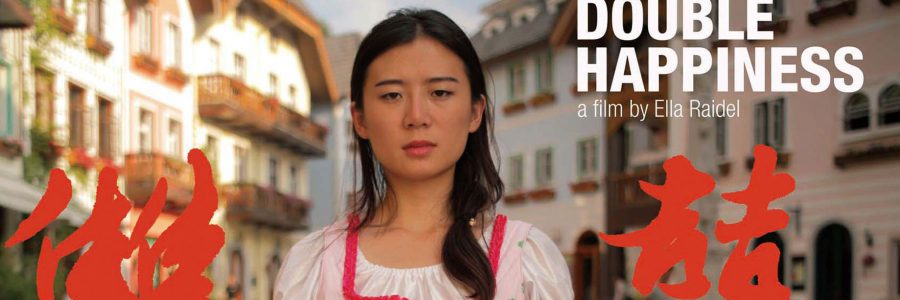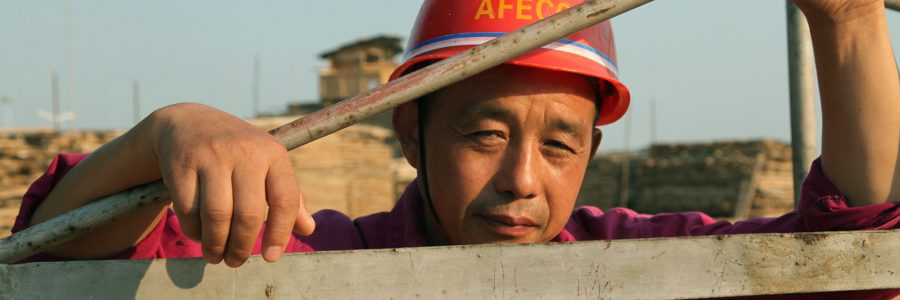SUBVERSES China in Mozambique, 45 Min., 2011, HD
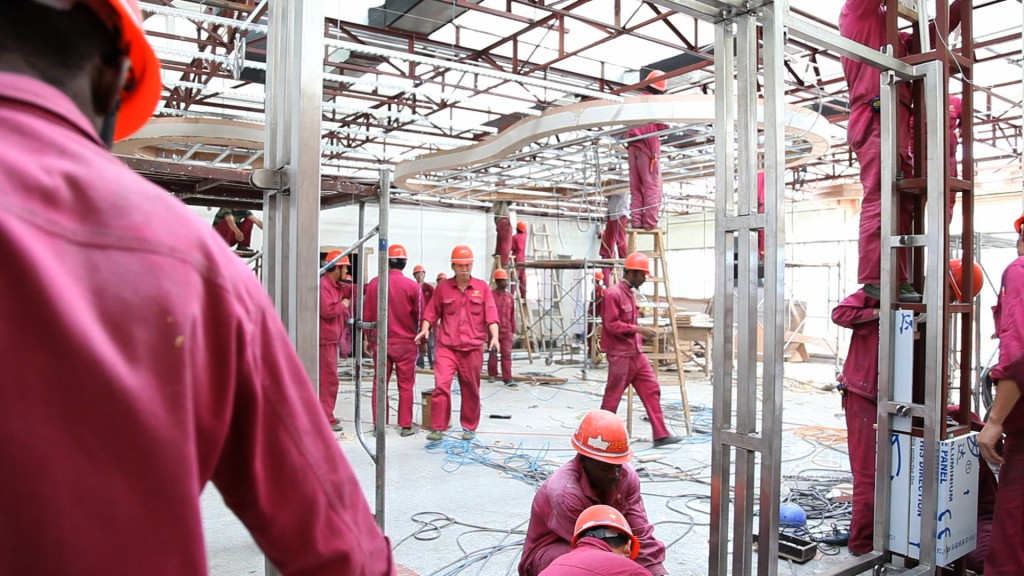
Raidel’s SUBVERSES China in Mozambique displays the Chinese worker in Mozambique from within and without. Taking the voice of a Chinese worker in Africa as an entry point, the film concludes with commentaries done in the local slam poetry, which serves not only as the presence of subcultures in flux around the world, but also as the film’s footnotes, referring the African oral tradition where history can be presented and thus told. The working conditions are stratified by socio-economical relations symbolized by the difference of colors and cultures. In the wave of globalization, the process of eliminating and reconstructing boundaries triggers mutual conflicts and struggles for power between local and foreign cultures, misplacing modernity resulting disorienting time and space. SUBVERSES detailing ethnic conflicts under the ever-present and uneven phenomenon of globalization comes into existence.
SUBVERSES China in Mozambique – german
Ella Raidels Dokumentarfilm SUBVERSES China in Mozambique beginnt mit Bildern eines chinesischen Geschäftsmannes, auf einer Terrasse über den Dächern Maputos, am Handy verhandelnd. Er steht mit dem Rücken zu uns, bleibt namen- und gesichtslos. Er rühmt seine Aussicht über die Stadt und deren Schönheit, er tut das mit dem Stolz eines Kolonialisten. Damit ist der Ton gesetzt, SUBVERSES referiert stetig an zwei Kontinuitäten, nämlich an die von Afrikas kolonialem Erbe, das mit dem ökonomischen Engagement aus Fernost einen neuen Höhepunkt zu erleben scheint: zum Teil subventioniert von europäischen Banken bauen chinesische Firmen die Infrastruktur Mozambiques. Dabei gehen sie nicht zimperlich vor, sondern ganz globalisierend und kapitalistisch, immer gemäß den Regeln von Gewinnmaximierung. Dass Arbeiter Rechte hätten, ist diesem Denken ebenso fremd, wie dass die Benachteiligung einheimischer Arbeiter eine Form von Rassismus sei. Aus dem Off wird der Text eines PR-Mitarbeiters einer jener chinesischen Firmen verlesen, der diese Strukturen bloßlegt und befragt.
Andererseits gibt es die Brüche dieses kolonialistischen Narrativs, etwa in der Form chinesischer Migrationsgeschichten, die sich – historischen Inseln gleich – noch vor dem rezenten wirtschaftlichen Boom zugetragen haben; oder aber in der Form von Darstellungen afrikanischer Arbeiter und Selbstdarstellungen afrikanischer Poeten. Wir sehen, wie sich in den Arbeitern Frustration und Ärger aufstaut, etwa in einem Interview auf einer Baustelle oder in einer Szene, in der ein Arbeiter Unregelmäßigkeiten in seiner Lohnabrechnung entdeckt. Die Slampoeten Maputos dagegen sind schon einen Schritt weiter: ihre Sub-Verses sind Ausdruck ihrer Autonomie. Sie bestimmen selbst, wie sie das Bild betreten und welchen Ton sie anschlagen. (Sylvia Szely)
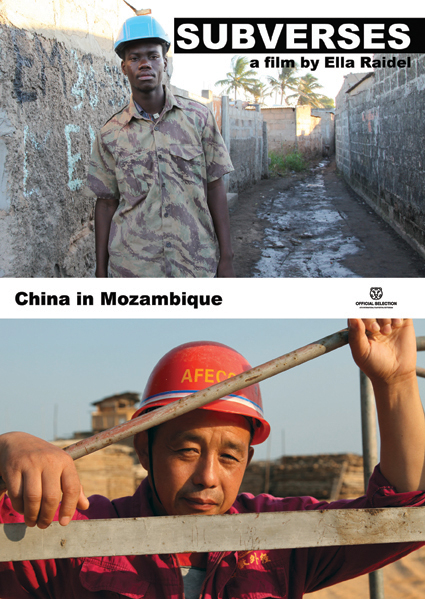
Räuberin
“Durch die Sprache und die Bilder wird das ernste Thema von einer fesselnden Schönheit umgeben und die persönlichen Beobachtungen in den Kommentaren lassen Zuschauer_innen sehr nahe an die mozambikanische Realität heran.”
http://www.aems.illinois.edu/publications/filmreviews/chinainafrica.html
“Ella Raidel’s independent film is beautifully made. The silent stills of individual Mozambican and Chinese workers cutting into the former’s grievances are quietly powerful…The documentary is artistically presented with passion and solicitude… “
Screenings:
International Filmfestival Rotterdam/ Raiding Africa, 2011
Crossing Europe, Filmfestival Linz, Austria, (Local Artist Award), 2011
Festival International du Film PanAfricain Cannes
DOCKANEMA, Documentary Filmfestival Maputo
Kulturvermerke Gmunden
Duisburger Filmwoche 2011
This Human World Filmfestival Wien
Topkino Wien, 18.01.2012, 19 Uhr
Afrikanische Filmtage, Kinemathek Karlsruhe
Association for Asian Studies Conference Toronto, March 15-18, 2012
OKTOSKOP. Das Filmfestival im Fernsehen.
Afrika Filmfestival Leuven, Belgium
Africa Hoje!, Documentary Filmfestival, Caixa Cultural Rio de Janeiro
Afrika Filmfestival Köln, 2012
China Dokumentarfilmfestival, Konfuziusinstitut Leipzig 2014
Distributed by Sixpackfilm Vienna, www.sixpackfilm.com
SUBVERSES China in Mozambique at Taipei Biennial Symposium and every Wednesday, 16:00, in the ‘Little Cinema’ at Taipei Fine Arts Museum

In SUBVERSES China in Mozambique, Ella Raidel investigated the contingent political- economic situation of growing Chinese investments in Africa, using a performative act of local and foreign workers as a poetic device. Taking the voice of a Chinese worker in Africa as an starting point, the film concludes with commentaries done in the local slam poetry, which serves not only which serve not only to underscore the presence of subcultures in flux around the world, but also as footnotes to the film, referring to the African oral tradition in the telling of history. Her method of filmmaking involves creating a discursive space that bridges the making of art and that of knowledge. Filmmaking in that sense can be seen as an artistic research, not only because of the processes involved in writing and shooting but also because of the complex archiving process in narratives, scenarios, subjects, and finally different politicized realities. The film SUBVERSES can also be read as a sequel of a Godard’s attempts in establishing a self-governed TV in Maputo during the 1970’s, which altogether serve as the production of the image in its self-reflexivity. It was Raidel’s interest to choose Mozambique, a former Portuguese colony, as her destination for making the film. The post-colonial experience coded by the history of technology and film-making is an extra-diegesis dimension of the work.
Taipei Biennial Symposium: 11th September 2016
LIVE AMMO, MOCA TAIPEI 2011

艾拉‧ 瑞德 (Ella Raidel)
《顛覆之詩》SUBVERSES China in Mozambique /錄像投影Video, 45 Min., 2011
艾拉‧瑞德習慣以影像記錄的形式呈現其創作理念, 早期作品不論鎖定快照店的沖洗過程或美術館的庫房等, 都指涉不可再現的真實。近年持續進行的紀錄片,遠赴非洲莫山比克拍攝當地的中國人生活情形,及其身處異地時,對於非洲的文化社會觀。因為全球化, 跨國的勞工遷徙不僅發生在先進國家,在邊陲地區實際更為劇烈,而衝突更大。
此次,瑞德的《顛覆之詩》播放中國勞工到非洲工作的紀錄片,在片中不斷穿插當
地 「饒舌詩」(poetry slam)的評述,一方面是全球次文化的融合結果;另一方面作為影像的註腳, 如同非洲口述歷史的傳統。在全球化浪潮中,去疆界化及再疆界化的過程,在地/外來文化場域中的權力相互推擠,乃至於時間與空間的現代性錯置,成為當今不均 衡的全球化的種族衝突的影像記錄。
